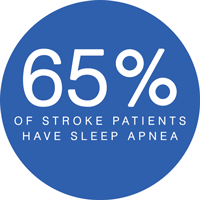What is Sleep Apnea?
Obstructive Sleep Apnea (OSA) is a potentially serious sleep disorder in which breathing repeatedly stops and starts during sleep. Several types of sleep apnea exist, but the most common type is obstructive sleep apnea, which occurs when your tongue and throat muscles intermittently relax and block your airway during sleep.
Diagnosing OSA
Upper Peninsula Sleep Dentistry (UPSD) will work with your physician as part of your sleep breathing team. Since OSA is a serious medical condition, it must be diagnosed by a physician. Diagnosis is based on the results of an overnight sleep study, either in-center at a sleep clinic, or in your home using a portable sleep monitor. Your breathing patterns and the oxygen concentration in your blood are monitored as part of your diagnosis.
Childhood OSA
Childhood sleep apnea has been linked to ADD, ADHD, and hyperactivity in children, along with permanent cognitive deficit, learning disability, constricted airways, hormonal imbalance, anxiety and depression.
“I noticed that Reggie snored but it was something I accepted. I would just elbow him. So many wives know about the elbow. If Reggie would have known about oral appliances he might still be alive today.”
— Football legend Reggie White died in his sleep at age 43 from complications of sleep apnea.
Drowsy Driving
Drowsy driving, which is directly correlated to sleep apnea, can be more dangerous than drunk driving. Drivers are 15 times more likely to be involved in a deadly motor vehicle accident when they have excessive daytime sleepiness, a common symptom of sleep apnea.

